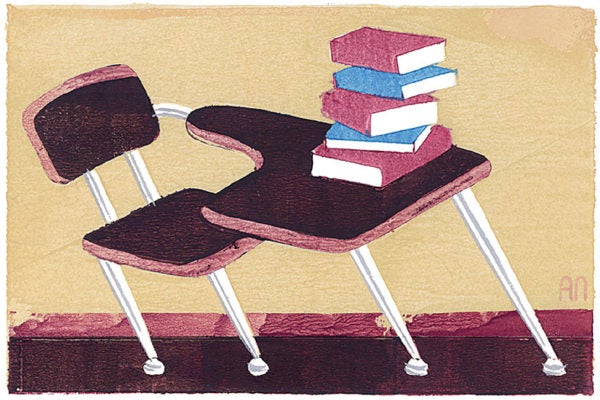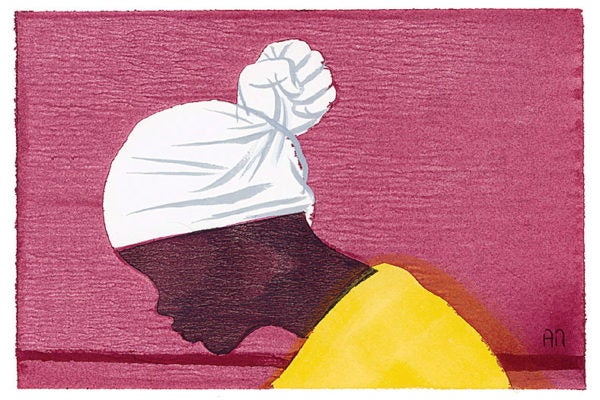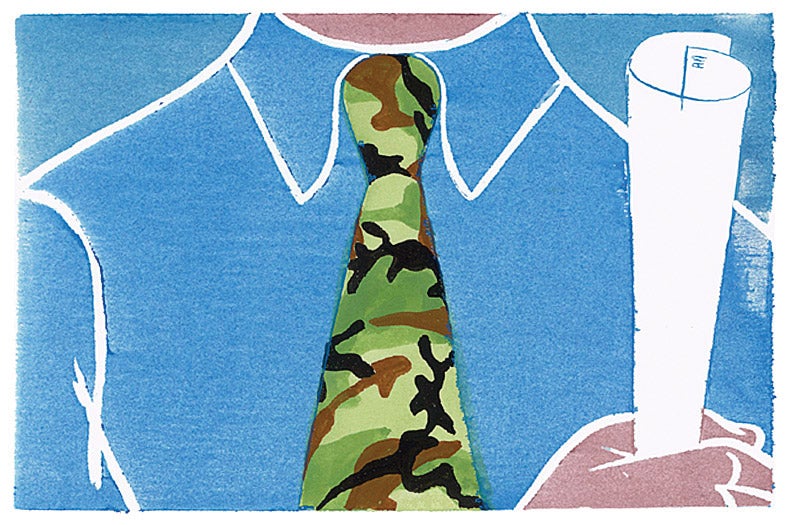A sampling from this year’s crop of 3L papers
Military but Private
When the Abu Ghraib prison scandal broke last spring, and private contractors as well as U.S. soldiers were implicated, Rebecca Weiner ’05 had already begun to think about the complicated role of private military companies in Iraq. She found they often exist in a legal limbo–difficult to regulate and prosecute–and yet often provide necessary support. Her paper was supervised by Professor David Kennedy ’80.
Charter for an Epidemic
Winter term this year found David Flechner ’05 in Angola, fluent in Portuguese and intent on completing a third-year paper that would yield something useful outside academe. Working with a local NGO, Flechner researched and wrote a human rights charter for people living with HIV/AIDS. By April, the NGO was using the charter (written in Portuguese). The related paper (written in English) was supervised by Human Rights Program Associate Director James Cavallaro.
Looking Inward
Since the board of directors of Enron Corp. hired a law firm to look into rumors of accounting irregularities, internal investigations have become nearly as common as heat waves in Texas. Megan Bern ’05 studied the trend and its implications for corporate legal compliance and corporate governance in a paper supervised by Professor Guhan Subramanian ’98.

Back to Brown
Bryan Carter ’05 wanted to understand why public education in some Southern states like North Carolina has historically been stronger than in others like Alabama, where he grew up. His comparative study of public education in the two states, supervised by Professor Martha Minow, took him back to Brown v. Board of Education and the very different responses of elected officials to the 1954 ruling outlawing school segregation.
Moving Right
George Hicks ’05 has been asking a lot of questions about politics. He interviewed dozens of HLS students, faculty and alumni and concluded that conservatism is on the rise in the student body, and has been for 25 years. During the same period, the HLS Federalist Society, the local branch of the national organization of conservative and libertarian law students, has come into its own. His paper, supervised by Visiting Professor Daniel Coquillette ’71, chronicles the two phenomena.
Land-use Economics
When the government takes property from a person or private entity and transfers it to another, for a “public use,” property owners and libertarians may object. And under certain circumstances, Daniel Kelly ’05 does, too. At the heart of his law and economics analysis, supervised by Professor Steven Shavell, is the idea that many such transfers are inefficient.
Faith and Credit
Ezekial Johnson ’05 and James Wright ’05, both members of the Church of Jesus Christ of Latter-day Saints, were intrigued by an apparent contradiction: Utah’s bankruptcy filing rate is sky-high, despite the Mormon church’s admonition to avoid excess debt and consumption. As part of their paper, supervised by Professor Elizabeth Warren, they distributed questionnaires to Mormon and non-Mormon bankruptcy filers in cities in Utah, and what they learned surprised them.

Constraint and Protest
Saratu Nafziger ’05 grew up in northern Nigeria, before defendants were sentenced to death by stoning. Last December, she returned to find out from lawmakers, academics and activists how women have been faring since religious law was reintroduced. She found much legislation that is detrimental but also women who are protesting it. Her paper was supervised by Adjunct Professor Frank Vogel.
